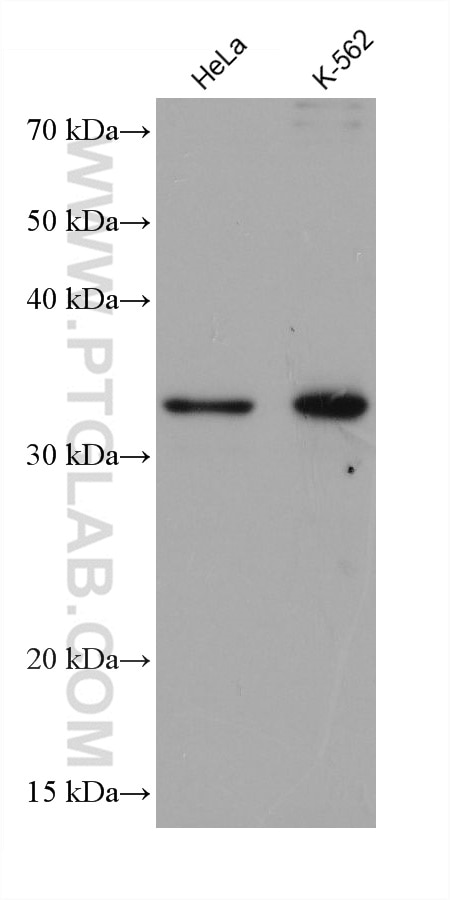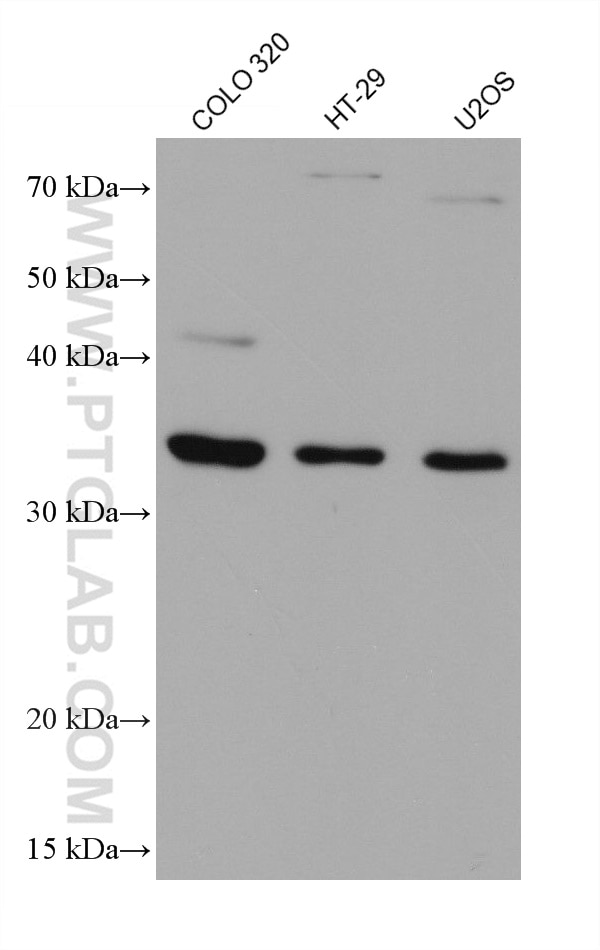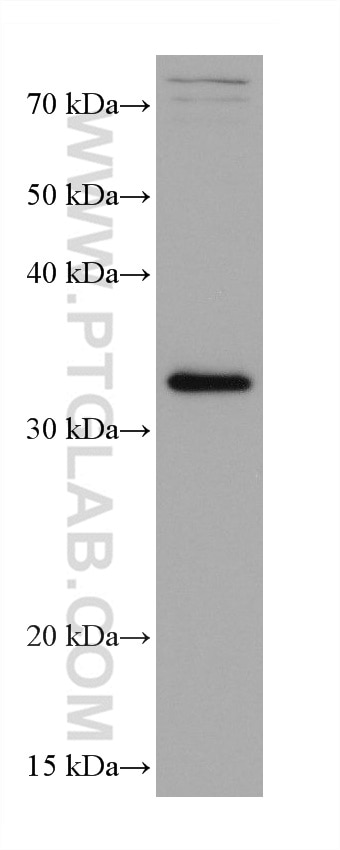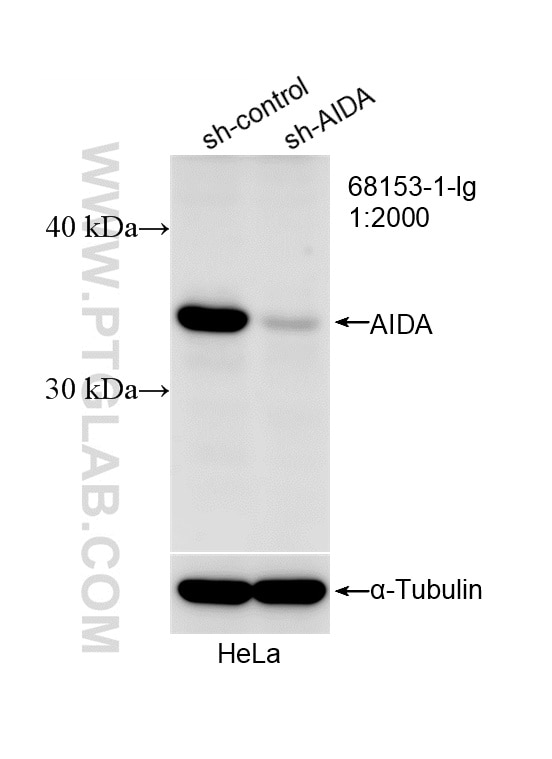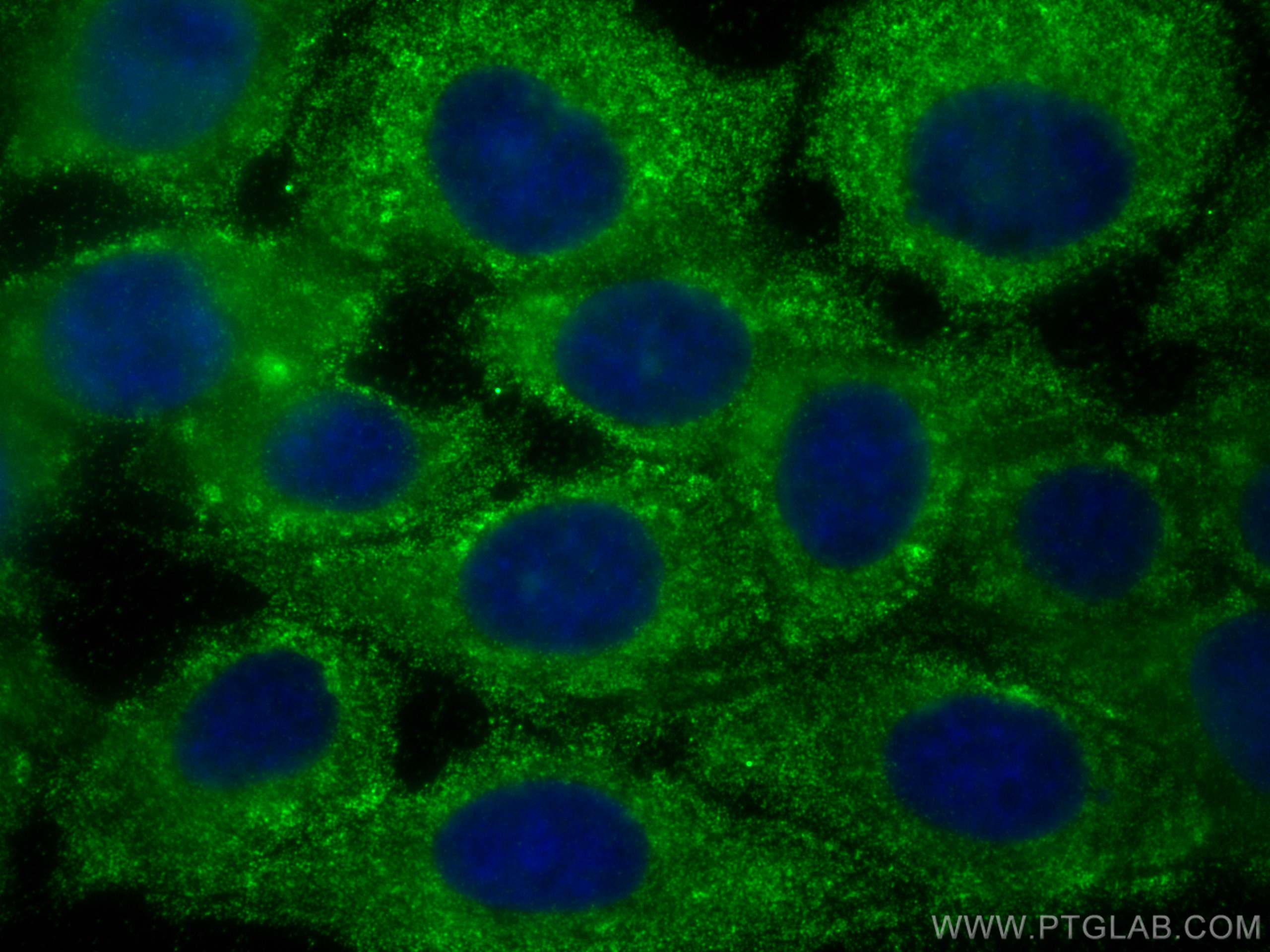Tested Applications
| Positive WB detected in | HeLa cells, COLO 320 cells, HepG2 cells, HT-29 cells, U2OS cells, K-562 cells |
| Positive IF/ICC detected in | A431 cells |
Recommended dilution
| Application | Dilution |
|---|---|
| Western Blot (WB) | WB : 1:2000-1:10000 |
| Immunofluorescence (IF)/ICC | IF/ICC : 1:400-1:1600 |
| It is recommended that this reagent should be titrated in each testing system to obtain optimal results. | |
| Sample-dependent, Check data in validation data gallery. | |
Product Information
68153-1-Ig targets AIDA in WB, IF/ICC, ELISA applications and shows reactivity with human samples.
| Tested Reactivity | human |
| Host / Isotype | Mouse / IgG1 |
| Class | Monoclonal |
| Type | Antibody |
| Immunogen | AIDA fusion protein Ag20597 Predict reactive species |
| Full Name | axin interactor, dorsalization associated |
| Calculated Molecular Weight | 306 aa, 35 kDa |
| Observed Molecular Weight | 35 kDa |
| GenBank Accession Number | BC015535 |
| Gene Symbol | AIDA |
| Gene ID (NCBI) | 64853 |
| RRID | AB_2923676 |
| Conjugate | Unconjugated |
| Form | Liquid |
| Purification Method | Protein G purification |
| UNIPROT ID | Q96BJ3 |
| Storage Buffer | PBS with 0.02% sodium azide and 50% glycerol, pH 7.3. |
| Storage Conditions | Store at -20°C. Stable for one year after shipment. Aliquoting is unnecessary for -20oC storage. 20ul sizes contain 0.1% BSA. |
Background Information
AIDA, also named as C1orf80, acts as a ventralizing factor during embryogenesis. It inhibits axin-mediated JNK activation by binding axin and disrupting axin homodimerization. It's highest expression in the heart and skeletal muscle. AIDA has three isoforms with MW 35 kDa, 16 kDa and 26 kDa.
Protocols
| Product Specific Protocols | |
|---|---|
| WB protocol for AIDA antibody 68153-1-Ig | Download protocol |
| IF protocol for AIDA antibody 68153-1-Ig | Download protocol |
| Standard Protocols | |
|---|---|
| Click here to view our Standard Protocols |
